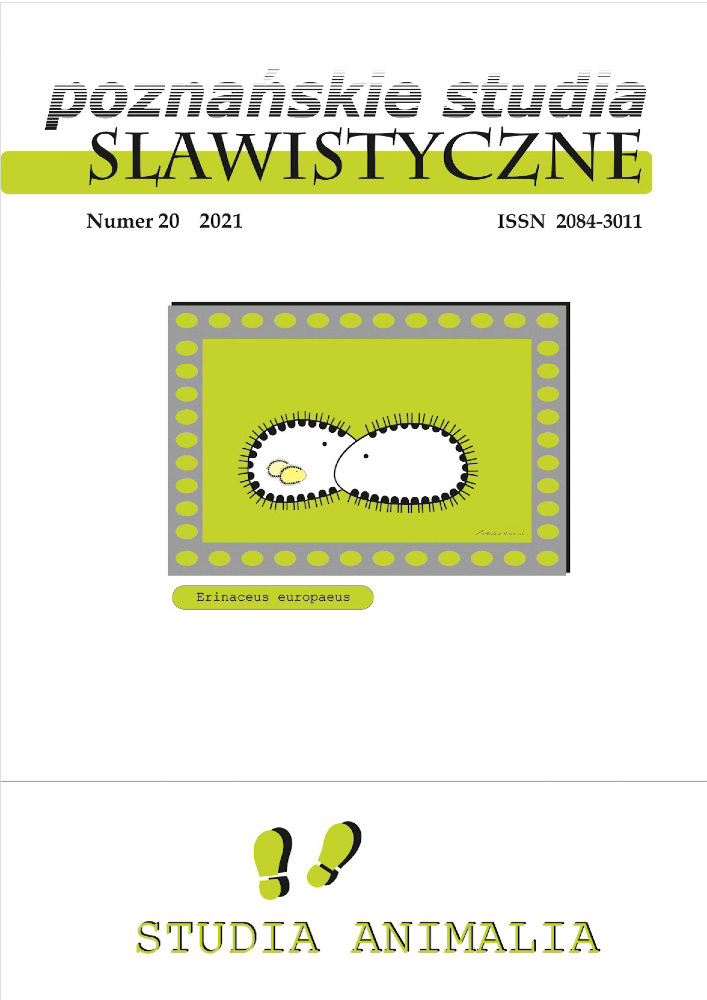Abstract
Questioning the commonly held assumption in critical reception that Ibsenʼs symbol of the wild duck was influenced by Darwinʼs theory, I want to argue that the wild duck flew into Ibsenʼs play all the way from Platoʼs aporetic dialogue The Theaetetus. Following Lacanʼs reading of Plato, I want to examine the connection between the Socratic position towards knowledge – especially the rupture between knowledge and truth – and the treatment of dramatic dialogue in Ibsenʼs The Wild Duck and Krležaʼs The Glembays.
References
Aarseth, A. (2005). Ibsen and Darwin: A Reading of The Wild Duck. „Modern Drama” no. 48 (1), str. 1–10. https://doi.org/10.3138/md.48.1.1.
Arbanas, G., Kreho, D. (2019). Leone Glembay – psihijatrijska i forenzička razmatranja književnog lika. „Liječnički vjesnik” vol. 141, br. 1–2, str. 40–44. https://doi. org/10.26800/LV-141-1-2-7.
Auerbach, E. (2004). Mimeza. Prikaz zbilje u zapadnoeuropskoj književnosti. Zagreb: Hena com.
Durbach, E. (2009). Ibsen’s Evangelical Detective: Evidence and Proof in The Wild Duck. „Scandinavian-Canadian Studies/Études Scandinaves au Canada” vol. 18, str. 44–54.
Guthrie, W. K. C. (2006). Povijest grčke filozofije. Sofisti – Sokrat. Prev. J. Bubalo, B. Malić, Z. Posinovec. Zagreb: Naklada Jurčić.
Ibsen, H. (1960). Hedda Gabler. U: Playwrights on Playwriting. The Meaning and Making of Moderm Drama from Ibsen to Ionesco. Ed. T. Cole. London: Macgibbon & Kee, str. 156–170.
Ibsen, H. (1978a). Divlja patka. U: Drame. Prev. Z. Mehmedbašić. Sarajevo: Veselin Masleša, str. 237–324.
Ibsen, H. (1978b). The Complete Major Prose Plays. Prev. R. Fjelde. New York: New American Library.
Ibsen, H. (1987). Divlja patka. Prev. A. Katušić Balen. [Rukopis].
Klajn, H. (1968). Gospoda Glembajevi u svetlu dubinske psihologije. „Forum: mjesečnik Razreda za književnost Hrvatske akademije znanosti i umjetnosti” vol. 15, br. 1, str. 103–135.
Krleža, M. (1962). Glembajevi. Drame. Zagreb: Zora.
Lacan, J. (2007). The Seminar of Jacques Lacan: The Other Side of Psychoanalysis. New York: W. W. Norton & Company.
Moi, T. (2002). „It was as if he meant something different from what he said – all the timeˮ: Language, Metaphysics and the Everyday in The Wild Duck. „New Literary History” vol. 33, br. 4, str. 655–686. https://doi.org/10.1353/nlh.2002.0042.
Matijašević, Ž. (2011/2012). Koja je prava boja nečiste krvi: Gospoda Glembajevi. „Drama – Slovensko narodno gledališče” br. 131. http://www.ffzg.unizg.hr/kompk/index.php?show=page.php&idPage=27. 15.12.2020
Pavlić, G. (2019). Glembajevi – dvojno čitanje. Zagreb: Akademija dramske umjetnosti–Hrvatska sveučilišna naklada.
Platon (1979). Teetet ili O znanju: istraživački dijalog; Fileb ili O nasladi: etički dijalog. Prev. M. Sironić, V. Gortan. Zagreb: Naprijed.
Platon (1996). Simpozij. U: Eros i Filija. Prev. Z. Dukat. Zagreb: Demetra, str. 20–163.
Platon (2002). Država. Prev. A. Vilhar. Beograd: Kultura.
Podrug, B. (2016). Platonov Simpozij: Eros kao počelo filozofije. Zagreb: Demetra.
Ronen, R. (2018). Lacan with Philosophers. Toronto: University of Toronto Press. https://doi.org/10.3138/9781487516079.
Szlezàk, T. A. (2000). Čitati Platona. Zagreb: Naklada Jesenski i Turk. Vidan, I. (1975). Ciklus o Glembajevima u svom evropskom kontekstu. U: Tekstovi u kontekstu: odjeci i odnosi u novijoj književnosti. Zagreb: Liber.
Wærp, L. P. (2020). The Struggle for Existence. Ibsen’s The Wild Duck (Vildanden, 1884). „Ibsen Studies” 20 (1), 3–36. https://doi.org/10.1080/15021866.2020.175 7303.
Zupančič, A. (2006) When Surplus Enjoyment Meets Surplus Value. U: Jacques Lacan and the Other Side of Psychoanalysis. Eds J. Clemens, R. Grigg. Durham, N.C.: Duke University Press, str. 155–178. https://doi.org/10.1215/9780822387602-009.
Zwart, H. A. E. (2000). The Birth of a Research Animal: Ibsen’s The Wild Duck and the Origin of a New Animal Science. „Environmental Values” 9 (1), str. 91–108. https://doi.org/10.3197/096327100129341994.
License

This work is licensed under a Creative Commons Attribution 4.0 International License.

